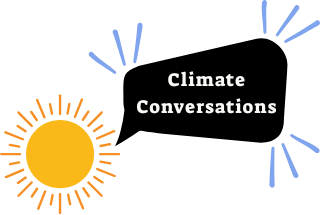
It’s time to start having Climate Conversations
Watch past Climate Conversations
Climate Conversations with Naomi Ortiz
Naomi Ortiz, author of Rituals for Climate Change: A Crip Struggle for Ecojustice and Sustaining Spirit: Self-Care for Social Justice. Arizona Humanities engaged in discussion with Ortiz as they shared with us their exploration of art, climate action, and disability justice through their works. Naomi Ortiz is a poet, writer, and visual artist whose intersectional work focuses on self-care for activists, disability justice, climate action, and relationships with place. They are the author of Sustaining Spirit: Self-Care for Social Justice, a nonfiction book published by Reclamation Press that delves into self-care tools and strategies for diverse communities. Their poetry/prose collection, Rituals for Climate Change: A Crip Struggle for Ecojustice, is forthcoming with Punctum Books and explores how climate change impacts connection to place, expands on and complicates who is seen as an environmentalist, and reimagines the relationship with the land.
Climate Conversations: Bridging Law and Our Natural Resources, Yesterday and Today with Dr. Michael Brescia
Water is one of the most valuable and contested natural resources in the American West. Communities have been fighting for access to scarce water sources for quite some time. How are water rights determined in areas that were once part of Spain and Mexico? Why are these old laws, customs, and usages still in effect and still practiced throughout the Southwest? Disputes over natural resources require navigating both thorny historical and legal issues. Spanish colonialism and U.S. expansionism have played defining roles in shaping debates over access and control of natural resources, from water to land to minerals. Join us as historian Dr. Michael Brescia unpacks the complex historical and contemporary issues regarding water rights and policy with multiple historical threads.
Climate Conversations are made possible by funding from the National Endowment for the Humanities through the A More Perfect Union Initiative.